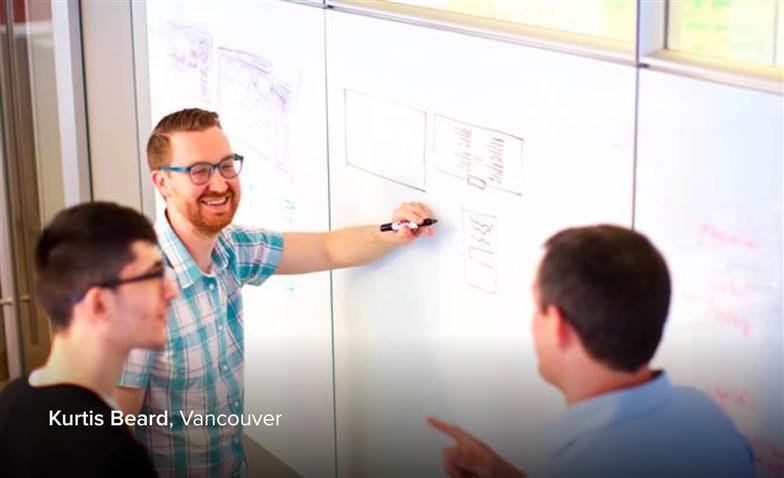A few weeks ago, our president, Steven Fitzgerald, was invited to speak on People Management Digest – the official podcast of Great Place to Work Canada. Although the episode is described as a conversation “about how organizations can benefit from cultures of accountability, flexibility and non-policy,” I would argue that it’s a conversation about innovation, culture and teams.
Below are a few of the insights that Steven shares, you can listen to the full podcast here.
“Innovation flows from experimentation. What hinders innovation? Organizations that don’t allow individuals to fail.”
Let’s not forget that when Thomas Edison invented the lightbulb, it was after 1,000 unsuccessful attempts—that’s 1000 failures, each one providing invaluable learning moments and opportunities to pivot and refine the approach.
In addition to supporting innovation with headspace, time, people, and money, for innovation to succeed, organizations need to see failure as learning. The journey to become innovative is not about process, tools, or structure. The most critical shift needs to be a mindset one, and it must apply to the entire organization.
"If innovation doesn’t align with purpose, it shouldn’t be happening in the organization."
A clear organizational purpose can unlock people from being stuck in how the organization works today by giving them a clear north star to orient around. Clear organizational purpose produces more expansive thinking and enables greater autonomy. A clear purpose also acts as a gauge for what innovation deserves support and what should be killed. Innovation can be at odds with the current strategy, but it should never be at odds with the organization’s purpose.
“Go faster by going slower. Getting the right solution right away isn’t always possible – you need to iterate.”
Human beings are solution obsessed—we are drawn to focus on solutions before we’ve spent the time to understand the problem. This is often worse when technology is involved. The goal should never be a solution, it should be a solution to the right problem. Understanding the right problem takes the discipline to slow down and learn through iteration and experimentation.
“We are dealing with humans all the time.”
That means learning how to meet people where they are at and getting clear about the balance of challenge and support that person needs at any given moment. Being more humanistic in your innovation design approach also ensures you are creating products, services, and output that will ultimately be a benefit to the people it is designed for.
“Creating a culture of accountability isn’t a management exercise – it is an everyone exercise.”
Culture, by definition, is the sum of the behaviours and beliefs of the whole organization. In this way, everyone plays a role in defining it. Leaders still have a critical role to play in that they need to be the ones to define and incent appropriate behaviours and be hypersensitive to what they should be modelling.
“Self-forming teams are the future.”
Every organization should experiment with self-forming teams. And, if most organizations look closely, some of their most successful teams were created this way.
These are just some highlights from the podcast; you can listen to the full conversation here.


.jpeg?bc=white&la=en&mw=416&modified=20260130165838&hash=095D0F305FD51C51141367B46960F57F63671A8C)
.jpeg?bc=white&la=en&mw=416&modified=20260130225717&hash=BEFCD20AA3DAC8B73C0657E188218D50B89DECA4)

